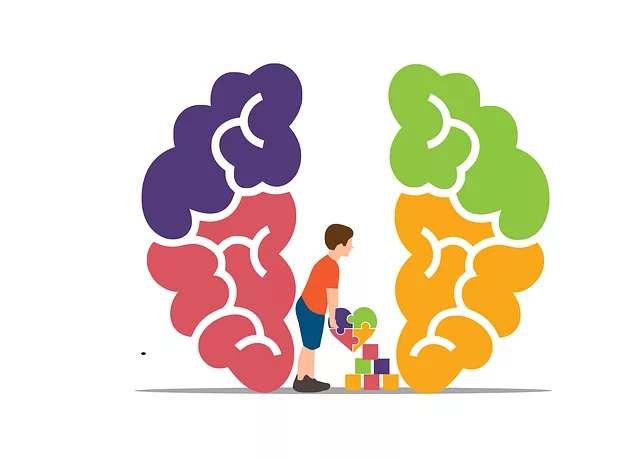Risk Management Planning for Mental Health Professionals: Lessons from Kaiser Permanente Centennial
Risk Management Planning is essential for delivering high-quality, safe mental healthcare at the Kai…….
In the ever-evolving landscape of healthcare, particularly within the realm of mental wellness, the Kaiser Permanente (KP) network stands as a beacon of hope and healing. This article delves into the intricate world of KP’s mental health center reviews in Centennial, exploring its impact, operations, and significance in the global healthcare scene. By examining various facets, from historical context to technological innovations, we aim to provide an all-encompassing view of this renowned healthcare provider. Through this journey, readers will gain insights into how organizations like Kaiser Permanente are reshaping mental health care, offering a glimpse into a future where accessibility and quality go hand in hand.
Kaiser Permanente Mental Health Center reviews refer to the evaluations and feedback mechanisms employed by KP, a leading not-for-profit healthcare provider, to assess its mental health services delivered at various centers, including the one located in Centennial, Colorado. These reviews encompass patient experiences, clinical outcomes, staff performance, and operational efficiency, all aimed at ensuring the highest standards of care.
The Kaiser Permanente organization traces its roots back to 1945 when it was founded as a pioneering provider of comprehensive healthcare plans. Over the decades, KP has grown into a vast network, offering a wide array of services, including mental health support. The Centennial location, established in the early 2000s, is one of many KP centers dedicated to providing accessible and innovative mental wellness solutions.
Centennial’s Kaiser Permanente Mental Health Center plays a pivotal role in addressing the mental health needs of the local community and beyond. It operates as a multifaceted facility, offering therapy, counseling, support groups, and specialized programs tailored to diverse populations. By integrating these services into the fabric of the community, KP fosters a culture of open dialogue about mental wellness, reducing stigma and promoting early intervention.
Kaiser Permanente’s model of mental health care has garnered global recognition for its holistic approach and success in improving patient outcomes. The organization’s commitment to evidence-based practices and continuous quality improvement has inspired healthcare systems worldwide. Many countries have adopted elements of KP’s framework, adapting it to their unique cultural and economic contexts, thereby enhancing the overall mental health infrastructure globally.
The mental health services market is experiencing significant growth globally, driven by increasing demand and improved recognition of mental wellness as a fundamental aspect of overall health. Kaiser Permanente, with its diverse service portfolio, caters to a wide range of consumers, from individuals seeking therapy to companies offering wellness programs for their employees. This multifaceted approach ensures financial stability and allows KP to reach a broader demographic.
KP’s economic model is characterized by significant private investments and partnerships with public healthcare systems. The organization’s not-for-profit status enables it to receive funding from various sources, including insurance providers, government grants, and community donations. In return, KP provides high-quality, accessible care, ensuring value for money and fostering community engagement.
Kaiser Permanente has embraced digital technology as a catalyst for enhancing mental health care. The introduction of online therapy platforms, mobile applications, and virtual reality tools has revolutionized access to services. For instance, KP’s Telehealth program allows patients in remote areas to connect with specialists, ensuring timely interventions and reducing barriers to care.
AI is playing a growing role in KP’s mental health centers, particularly in diagnostics and personalized treatment planning. AI-driven algorithms can analyze vast amounts of patient data, helping clinicians make more informed decisions. For example, natural language processing (NLP) can be used to assess patient mood and sentiment from text-based communications, enabling early identification of adverse conditions.
The operations of Kaiser Permanente Mental Health Centers are guided by a comprehensive set of policies and regulations designed to ensure patient safety, privacy, and ethical practices. These include:
While robust policies provide a framework for high-quality care, they also present challenges. For instance, navigating complex regulatory requirements can be time-consuming and resource-intensive. Additionally, ensuring equal access to mental health services for underserved populations remains a key policy priority, driving KP’s community engagement initiatives.
One of the primary challenges faced by Kaiser Permanente Mental Health Centers is addressing barriers to care, particularly in rural or low-income areas. Strategies to overcome this include:
Criticisms of KP’s mental health centers often revolve around long wait times for appointments and limited availability of certain specialized services. To address these:
In a collaborative effort with local schools, KP Centennial launched an innovative program to support teenage mental wellness. This initiative included regular workshops on stress management and emotional intelligence in schools, followed by individual counseling sessions for students in need. The program’s success led to reduced school absences and improved academic performance, demonstrating the power of community-integrated care.
Recognizing the unique mental health needs of seniors, KP developed a specialized program tailored to older adults. This included home-based therapy sessions, peer support groups, and educational workshops on age-related mental health concerns. The program’s positive outcomes, such as improved cognitive function and increased social engagement, highlight the importance of aged-care specific interventions.
The future of Kaiser Permanente Mental Health Centers is poised for significant growth in telehealth capabilities. As technology advances, KP aims to expand its online therapy platforms, making specialized services more accessible, especially in rural areas. This shift will not only improve accessibility but also reduce the strain on in-person clinic resources.
Digital therapeutics, or “d-therapeutics,” represent a burgeoning trend within mental health care. KP is well-positioned to embrace this by integrating evidence-based digital interventions into its service offerings. These tools can supplement traditional therapy and provide cost-effective solutions for common mental health disorders.
There is a growing emphasis on preventive mental healthcare, and Kaiser Permanente aims to be at the forefront of this movement. This involves educating communities on early signs of mental health issues and providing resources for self-care and resilience-building. By empowering individuals with knowledge and tools, KP contributes to a culture of proactive wellness.
Kaiser Permanente Mental Health Center reviews Centennial exemplify the transformative potential of dedicated healthcare organizations in shaping mental wellness outcomes. Through its comprehensive approach, KP not only provides high-quality care but also fosters community engagement and advocacy for mental health awareness. As the global landscape of mental healthcare continues to evolve, KP’s commitment to innovation, accessibility, and continuous improvement sets a benchmark for others to follow.
The future holds immense potential for KP and other similar organizations to revolutionize mental health care through technology, policy reforms, and community partnerships. By embracing emerging trends and learning from successful applications, we can collectively work towards a world where mental wellness is prioritized, accessible, and supported on a global scale.
Q: How does Kaiser Permanente ensure the privacy of patient information?
A: KP adheres to strict data protection protocols, including encryption of sensitive data, limited access to records, and regular security audits, all in compliance with HIPAA regulations.
Q: Are Kaiser Permanente’s mental health services covered by insurance?
A: Yes, most insurance plans are accepted at KP centers, including major medical and behavioral health insurers. Specific coverage details may vary, so patients are encouraged to confirm their benefits.
Q: Can I access online therapy if I live in a remote area?
A: Absolutely! KP’s Telehealth program offers virtual therapy sessions for individuals in rural or far-flung locations, ensuring accessibility regardless of geographical barriers.
Q: How do I know if I’m eligible for mental health services at Kaiser Permanente?
A: KP welcomes all individuals seeking support for their mental wellness journey. Eligibility criteria vary based on specific programs and resources, but generally, anyone can access assessment and referral services to determine the most suitable care path.
Q: Are there support groups available for family members of individuals with mental health conditions?
A: Yes, KP provides a range of support groups, including those for families and caregivers, offering a safe space for education, sharing experiences, and finding peer-to-peer understanding.

Risk Management Planning is essential for delivering high-quality, safe mental healthcare at the Kai…….

The Kaiser Permanente Mental Health Center in Centennial provides personalized, culturally sensitive…….

The Kaiser Permanente mental health center in Centennial receives excellent reviews for its holistic…….

The Kaiser Permanente mental health center in Centennial focuses on stress management, emphasizing i…….

Mental wellness journaling, as discussed in Kaiser Permanente mental health center reviews Centennia…….